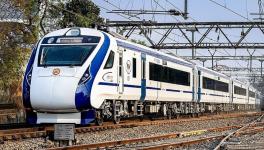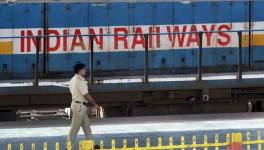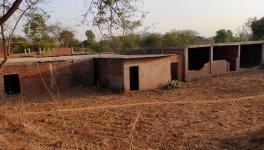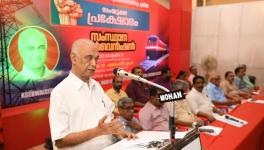Bumpy Road for Freight Privatisation, the Railways’ Next Big Move
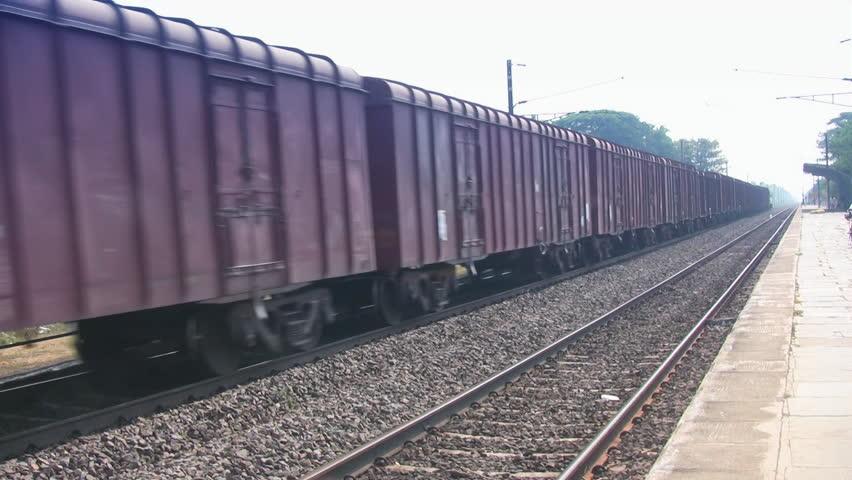
Representational image. | Image Courtesy: Shutterstock
New Delhi, Aug 29: After firming up the private passenger train initiative – now in motion – the Indian Railways is now looking at prospects of involving private players in freight operations in a big way.
The next significant move in the rail sector seems to be fast-tracking the completion of two dedicated freight corridors (DFC). It is believed that with the DFCs in place, certain sections of these exclusive paths, could be auctioned for private players, to begin with.
The overall cost of the DFC is pegged at Rs 81,459 crore – to build Eastern and Western corridors – and as per the plan, the Railways would allow private players to run the operation through monetising the assets to the highest level in order to repay loans and receive some revenue upfront.
Unlike the passenger sector, the bidding process for private freight trains is expected to be much simpler, as private players will be allowed to run double-stack containers or wagons on the DFC route and share the revenue with the Railways. The rates will, of course, be market-driven.
However, the ambitious plan to allow private players in the over 3,000 km long DFC project, a flagship programme of the Railways, has hit hurdles as only about 500 kms of the route has been finished so far.
Unfinished rail over bridges (ROB), signalling work, track linking, land acquisition and the law and order situation in certain states are among major reasons given by the DFCC. It stated so in a recent review meeting about the delay in the execution of the project.
The PMO has also reportedly raised concerns over delay in the construction of the goods corridors. The Railways has pointed out that sluggish work by contractors were among reasons for the bottlenecks in this mega project.
After missing several completion targets in the past, the Dedicated Freight Corridor Corporation of India Limited (DFCCIL) has now been given a fresh timeline ending June 2022, which appears to be a herculean task given its snail's pace of the past.
Though progress in the DFC project is abysmally slow, the completion of the dedicated goods corridor is crucial for the success of the part-privatisation of passenger and freight services.
Most of the freight trains would be shifting to the DFC – following it being operational – freeing up major trunk routes for passenger operation.
According to the plan, the first batch of private passenger trains would be up and running in April 2023, at a maximum speed of 160 kmph. Railways also want to run passenger trains on demand and increase the speed of these trains to 130 kmph and 160 kmph, an idea which hinges on the completion of these two corridors.
According to a senior DFCCIL official, the reasons for slow progress include non-availability of land for construction of rail over bridges (ROBs), certain approaches in Gujarat, Uttar Pradesh and Bihar, difficult in laying tracks in some sections, the poor performance of contractors and litigation.
Earlier, the Railways has set June 2022 as the deadline for operationalisation of the two corridors.
The pandemic has also hit the project’s deadline, the official said, citing the 157 km Bhadan-Bhaupur stretch, which was scheduled for completion in March this year. The date has now been pushed to October this year; the target is to commission another 592 kms this year.
DFCCIL has been struggling to get land in Muzaffarnagar, Meerut and Saharanpur in Uttar Pradesh, which has hit its work schedule. In Bihar, land acquisition is pending for 29 ROBs and the process for seven ROBs has been slow in Gujarat as well.
According to the railways, the project is now being monitored on a weekly basis in order to expedite its execution, with further slippages in the timeline deemed to be unacceptable.
Construction is ongoing on the Western DFC (1504 km route) and the Eastern DFC (1856 kms), spanning a total length of 3,360 kms. The EDFC, beginning from Sahnewal near Ludhiana (Punjab), will pass through the states of Punjab, Haryana, Uttar Pradesh, Bihar and Jharkhand, finally terminating at Dankuni in West Bengal.
The Western Corridor will connect Dadri in Uttar Pradesh to Jawaharlal Nehru Port (JNPT) in Mumbai, traversing through the states of U.P., Haryana, Rajasthan, Gujarat and Maharashtra.
Get the latest reports & analysis with people's perspective on Protests, movements & deep analytical videos, discussions of the current affairs in your Telegram app. Subscribe to NewsClick's Telegram channel & get Real-Time updates on stories, as they get published on our website.










